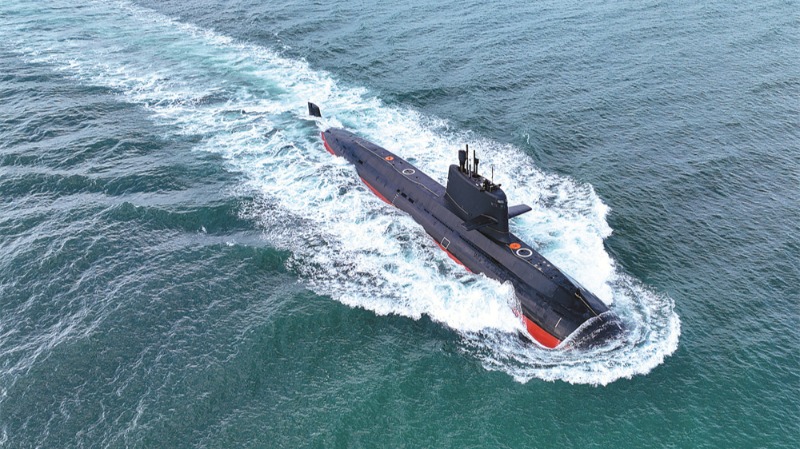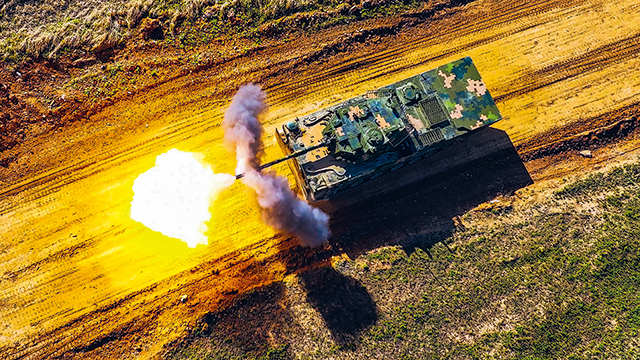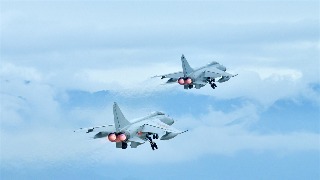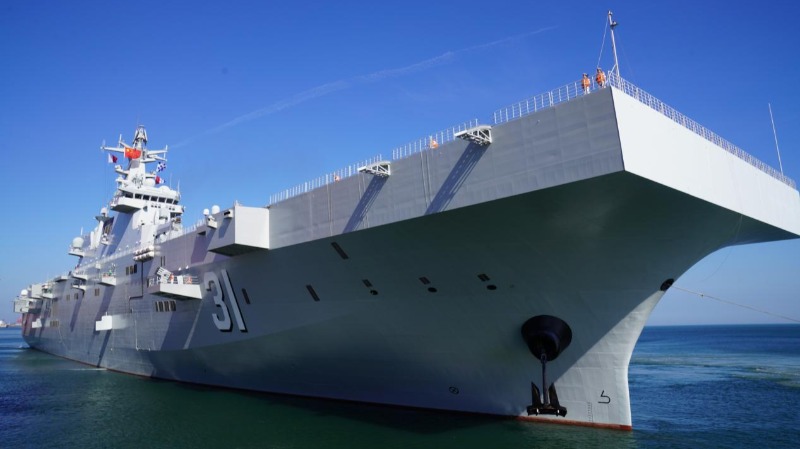By Wang Wei'an
王伟安
The EU summit recently concluded in Brussels, the capital of Belgium. Certain key issues including support to Ukraine, European defense, and the situation in the Middle East were discussed at the summit. Considering the high uncertainty regarding the security commitments of the Trump administration of the US to Europe, as well as the practical pressure imposed by the lasting Russia-Ukraine conflict and related spillover risks, the EU member states have reached a consensus on seeking European defense autonomy. The summit sought to shift the role of the EU in its own defense from "executor" to "decision-maker", thus enhancing the EU's say over European defense.
日前,欧盟峰会在比利时首都布鲁塞尔结束。峰会讨论了援助乌克兰、欧洲防务以及中东局势等重要议题。鉴于美国特朗普政府对欧洲安全承诺存在高度不确定性,以及俄乌冲突延宕乃至外溢风险日增的现实压力,谋求防务自主已成为欧盟各国的普遍共识。这次峰会试图将欧盟的防务角色从“执行者”转变为“决策者”,以提升欧盟在欧洲防务问题上的话语权。
Of note is that the outcome document of the summit didn't clearly mention whether to approve or not the Defense Readiness Roadmap 2030 (hereinafter referred to as "Roadmap") unveiled by the European Commission previously. It exposes doubts and differences haunting the Roadmap, which has only garnered "limited consensus" so far.
值得注意的是,峰会成果文件未明确提及是否“通过”此前欧盟委员会提出的“防务备战路线图2030”(以下简称“路线图”)。这显示出不少欧盟国家对“路线图”存有疑虑和分歧,仅达成“有限共识”。
The Roadmap calls on EU member states to build "a sufficiently strong European defense posture to credibly deter its adversaries and respond to any aggression" in the following critical five-year period. It also proposes four prioritized "flagship" projects, including the European Drone Defense Initiative, the Eastern Flank Watch, the European Air Shield, and the European Space Shield, for the purpose of strengthening the EU's deterrence and defense in land, sea, air, cyber and outer space, and other domains.
“路线图”要求欧盟成员国在未来的关键5年内“建设足够强大的欧洲防卫体系,建立可信的战略威慑,应对任何侵略”,并提出4个优先“旗舰”项目,即“欧洲无人机防御倡议”“东翼监测”“防空盾牌”“防御太空盾牌”,以强化欧盟在陆、海、空、网络与太空等领域的威慑与防卫能力。
Notwithstanding the continuous expansion of defense spending of many European countries, due to historical and practical factors, the progress of European defense autonomy is "idealistic in theory but harsh in reality", with the implementation of the ambitious Roadmap vision doomed to multiple challenges.
尽管目前多个欧洲国家都在持续提高国防支出,但由于历史和现实的原因,欧洲防务自主进程“理想丰满、现实骨感”,实现“路线图”雄心勃勃的愿景仍面临多重难题。
The internal cause of the differences primarily comes from interest gaming within the EU. As an issue concerning national sovereignty, defense integration has always been sensitive in the EU. Some EU member states are concerned that the European Commission and other institutions are attempting to interfere in their national defense policies through the Roadmap. The European Commission had to emphasize in the Roadmap that "member States are and will remain sovereign for their national security and defense." Southern European countries such as Spain and Italy expressed dissatisfaction with the fact that the "flagship" projects prefer mainly the eastern part of Europe. France, Germany, and other major countries strongly oppose the usage of various European defense funds to subsidize the concept of "drone wall" for Eastern European countries. The European Commission had no choice but to compromise, emphasizing the "pan-European" nature and the "360-degree approach" to fund allocation of the projects.
欧盟内部的利益博弈,是分歧产生的主要内因。防务一体化涉及国家主权,历来是欧盟内部较敏感的议题。部分欧盟国家担心,欧盟委员会等机构企图通过“路线图”插手干预本国国防政策。欧盟委员会不得不在“路线图”中强调,在国防事务上,“成员国现在是、未来也仍将是独立自主的”。西班牙、意大利等南欧国家对“旗舰”项目主要惠及欧洲东部地区表示不满。法、德等大国则强烈反对用欧洲各类防务基金为东欧国家的“无人机墙”构想买单。欧盟委员会只得做出妥协,强调项目的“泛欧”性质及“360度全方位”资金分配。
The funding restraint and technical bottlenecks constraining the implementation of the Roadmap also lead to sparse proponents of the initiative. The Roadmap will only be implemented through substantial financial support. As such, many EU member states will see a further rise in their already high debts, which will cause potential social contradictions and even political unrest. Moreover, significant gaps exist in Europe's technological buildup and industrial support in space defense, drone and counter-drone, and other fields. Since the feasibility of the "flagship" projects in the Roadmap is still to be verified, they are highly likely to remain on paper in the short term.
实现“路线图”目标面临的资金紧张困境和技术瓶颈制约,也是响应者寥寥的原因。“路线图”落实需要巨额资金支持,这将导致欧盟多国本已高企的债务风险继续攀升,进而引发社会矛盾乃至政治动荡。此外,欧洲在太空防御、无人机与反无人机等领域技术积累和产业配套上均存在明显不足。“路线图”中各“旗舰”项目的可行性有待验证,短期内大概率将停留在纸面上。
Another major barrier facing the EU's pursuit of defense autonomy stems from pressure and control imposed by the US. Indeed, the EU is unlikely to remove and eliminate its reliance on the US and NATO in defense. The Roadmap emphasizes defense autonomy on the one hand, and requires every project to "ensure maximum coherence and mutual reinforcement, while avoiding unnecessary duplications" on the other hand. Europe not only has developed the subjective policy logic and psychological tendency of enjoying NATO's security benefits, but also suffers long-term objective reliance on and control by NATO in command structures, conventional weapons and equipment, and even nuclear deterrence, to name a few.
来自美国的压力和控制仍是欧盟追求防务自主的一大障碍。事实上,欧盟难以在短期内摆脱和消除对美国和北约的防务依赖。“路线图”一面强调防务自主,一面又要求所有项目均需“与北约保持协同,避免重复建设,强化功能互补”。欧洲主观上已形成了搭北约安全便车的政策逻辑与心理惯性,客观上在指挥架构、常规武器装备乃至核威慑等诸多领域还将长期依赖并受制于北约。




















